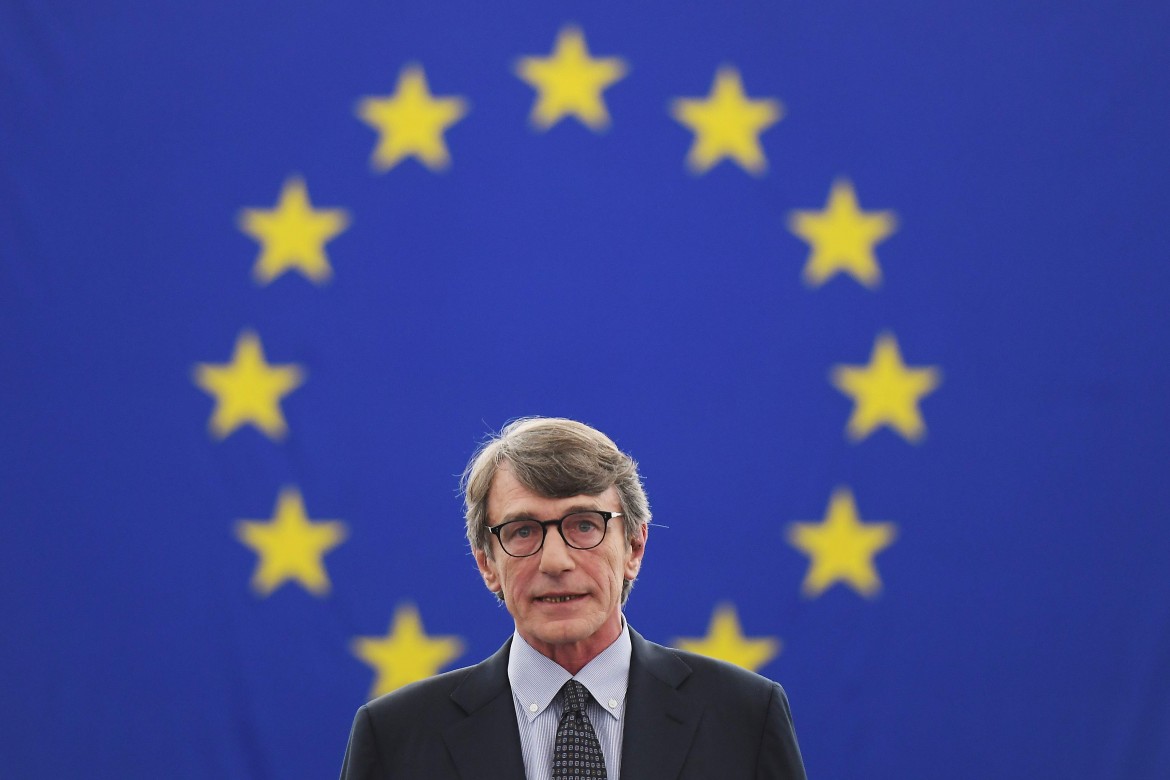Commentary
The scourge of ‘reversism’ unites Europe, from the Italian Democrats and Orban
A resolution in European Parliament, with reckless disregard for the historical truth, assigns equal responsibility for the Second World War to Nazi Germany and Soviet Russia. Predictably, this document was approved by right-wingers but also, disappointingly, with the votes of the Popular Party and of the so-called ‘Socialists.’

The recent resolution of the European Parliament, based on a false equivalence between Nazism-fascism and communism, represents both a bastardization of history and a political monstrosity. Furthermore, it is also a resounding confirmation of the superfluity of this institution.
If we really want a united Europe, and if we want it built as it should be—that is, rebuilt from the founding principles up—then the European Parliament as it is should be eliminated altogether. Case in point: a group of gentlemen enjoying great privilege, who spend their lives in little more than idleness, have formulated a text based on embarrassingly half-baked scholarship, without rhyme or reason. It’s a very long document, full of presuppositions and internal references to legislation focused on European unity, but, alas, unfortunately including a series of summary judgments which purport to be historical, but are actually an example of the worst possible kind of ideological revisionism.
In short, we are dealing with a prominent example of historical reversism, something that is seldom talked about and condemned enough, but which represents the supreme manifestation of revisionism, the end result of a long labor of cultural subversion which has passed from the academic realm into the public debate through the medium of professional journalism and politics.
Reversism can lead to such extreme outcomes that traditional revisionism doesn’t dare approach, and this document is a prominent example of this.
Its underlying thesis, reached through reversist interpretation and of which we have seen many manifestations in Italy, is the outright reversal of the historical truth, based on a fraudulent parallelism—which unfortunately has illustrious precedents in political philosophy—between fascism and communism, between fascism and anti-fascism, and between “partisans” and “republicans” (to focus just on the case of Italy).
All this is built on the basis of the nefarious theory of a “shared legacy” of both sides—which in this supposedly “European” document is referred to in the singular—as a source of the common identity for the continent, with which this legislative body, representing only a certain (however large) part of it, claims to identify. It must be recalled that the European Union is not identical with Europe itself, and that the European Parliament and the EU do not express the feelings, thoughts, sensibility—nor, I would add, the will—of the hundreds of millions of citizens of the 27 member states.
That said, this resolution, with reckless disregard for the historical truth, assigns equal responsibility for the Second World War to Nazi Germany and Soviet Russia, claiming in particular that it was the “immediate result” of the Ribbentrov-Molotov Pact, and emphasizing—again, in an example of grotesque violence to historical reality—that the political unity of the Old Continent is an answer to both “Nazi tyranny” and “the expansion of totalitarian and undemocratic communist regimes,” citing with praise the laws in a number of member states which have already “banned the use of both communist and Nazi symbols,” and calling upon the other EU states to follow this model.
Curiously, this document, produced by the latest crop of historical illiterates, uses the words “historical revisionism” to refer exclusively to revisionism about Nazism and its inherent genocidal project, while it presents its own historical interpretation as unmistakably correct and beyond any doubt, to the point of demanding it be enshrined into law.
And what is the political proposal which comes as the culmination of this incredible example of outright historical lies, together with political and moral debasement? It is a demand for official condemnation of “all manifestations and propagation of totalitarian ideologies, such as Nazism and Stalinism,” and for conducting “a clear and principled assessment” which will put this recommendation into practice: in the end, what it aims for is nothing less than taking measures to prevent the existence, spread and circulation in the member states of any ideologies and symbols that recall either Nazism or communism.
In short, Europe must follow the shining examples of Poland, Hungary and the Ukraine: it must forget the crucial role played by Russia, which is given the label of a “victim” country, but whose role as a bulwark against Nazi-fascism, confirmed by all historical research, is not to be recognized. This document, which seems directly inspired by German, Polish and Hungarian revisionists, contains enthusiastic words celebrating the reception back into “to the European family of free democratic countries” of the countries liberated from the Soviet yoke, while, quite amazingly, citing “their accession to the EU and NATO” as similarly praiseworthy achievements, in an unacceptable mishmash of Europeanism and Atlanticism.
Predictably, this document was approved with the votes of the right-wingers of Orbán and company—but also, disappointingly, with the votes of the Popular Party and of the so-called “Socialists,” including the representatives of the Democratic Party. With this, the PD has clearly signaled its definitive disavowal of the international left—and even worse, its disavowal of all decency and dignity.
Originally published at https://ilmanifesto.it/il-mostro-storico-del-rovescismo-unisce-il-pd-e-orban/ on 2019-09-22
